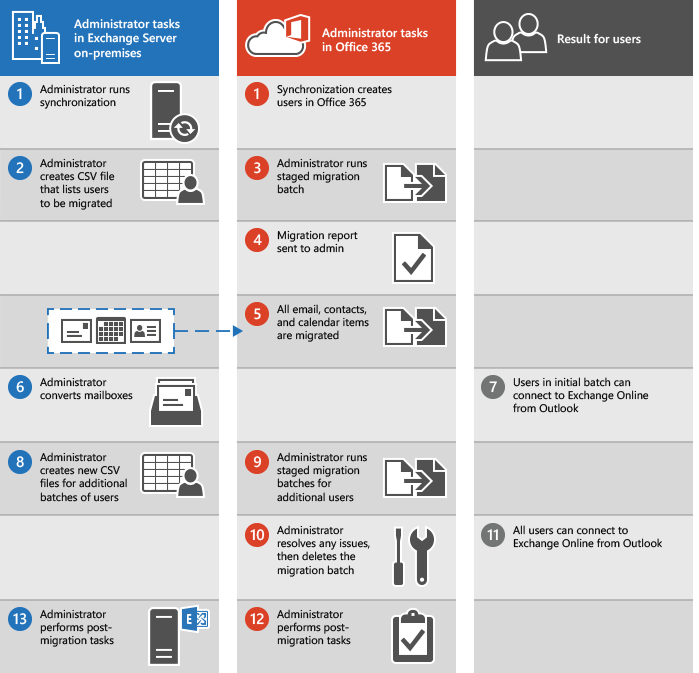Exchange Online - Staged Migration
When you want to migrate the contents of user mailboxes from a source email system to Office 365, when you do this over time, it's called a staged migration. A staged migration isn't intended for organizations that want to permanently maintain mailboxes in both their on-premises organization and Exchange Online or that plan to transition all mailboxes to Exchange over a long period of time. An Exchange hybrid deployment is a better solution for maintaining on-premises and cloud-based mailboxes for the long term because it offers features such as secure mail routing between on-premises and Exchange Online organizations, a unified shared address book, Free/Busy and calendar sharing between on-premises and Exchange Online organizations, and the ability to move Exchange Online mailboxes back to the on-premises organization.
A staged migration is recommended when:
- Your source email system is Microsoft Exchange Server 2003 or Microsoft Exchange Server 2007.
NOTE You can't use a staged migration to migrate Exchange 2013 or Exchange 2010 mailboxes to Office 365. Consider using a cutover migration or a hybrid email migration instead.
- You have more than 2,000 mailboxes.
Let’s check the 11 Tasks which needed to be done in order to proceed with Staged Exchange Migration:
- Prepare for a staged migration
- Verify you own the domain
- Use directory synchronization to create users in Office 365
- Create a list of mailboxes to migrate
- Connect Office 365 to your email system
- Migrate your mailboxes
- Start the staged migration batch
- Convert on-premises mailboxes to mail-enabled users
- Route your email directly to Office 365
- Delete the staged migration batch
- Complete post migration tasks
On the next article, we will talk in more details for the Tasks on Exchange Staged Migration.
Stay Tune…
